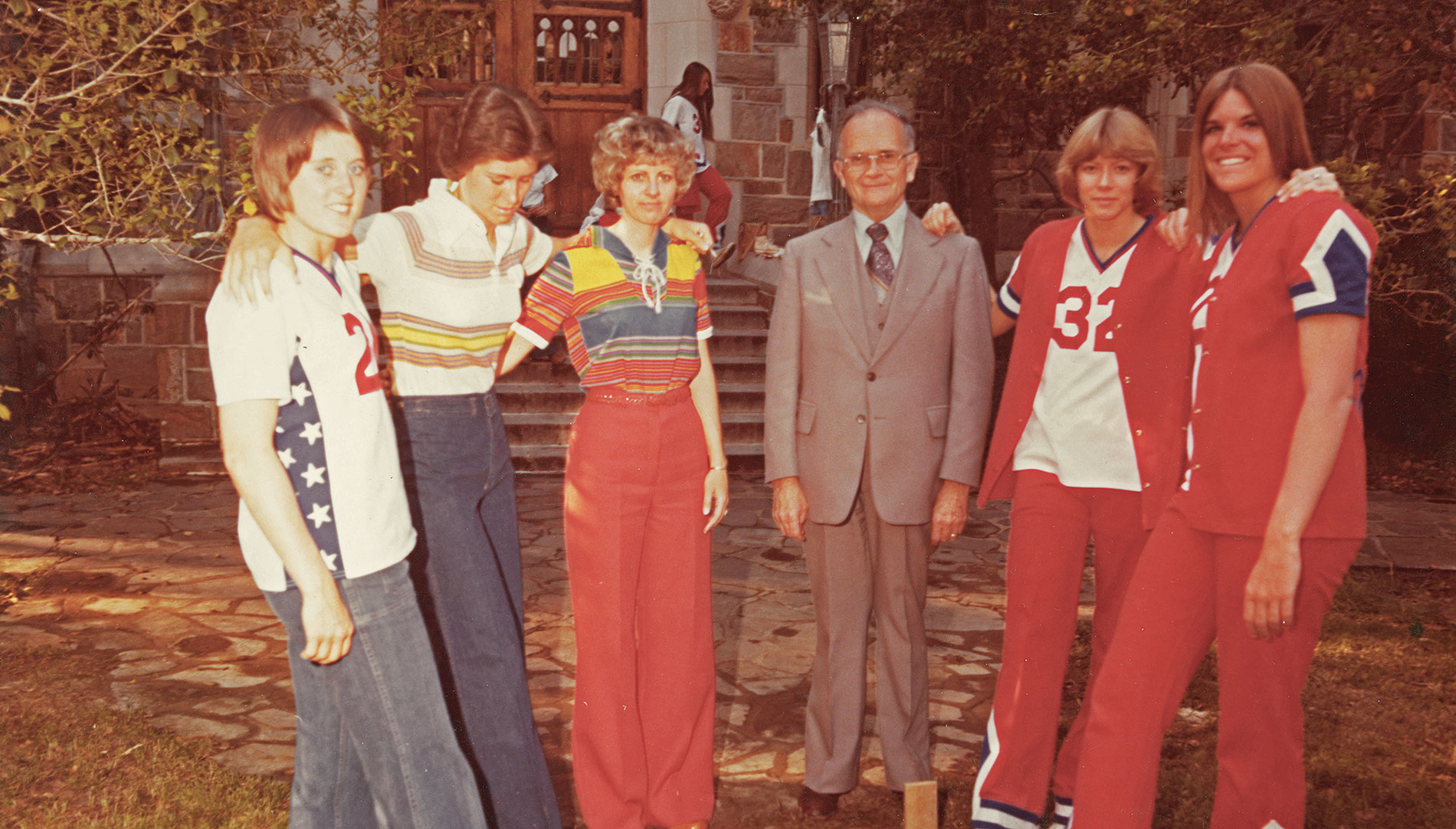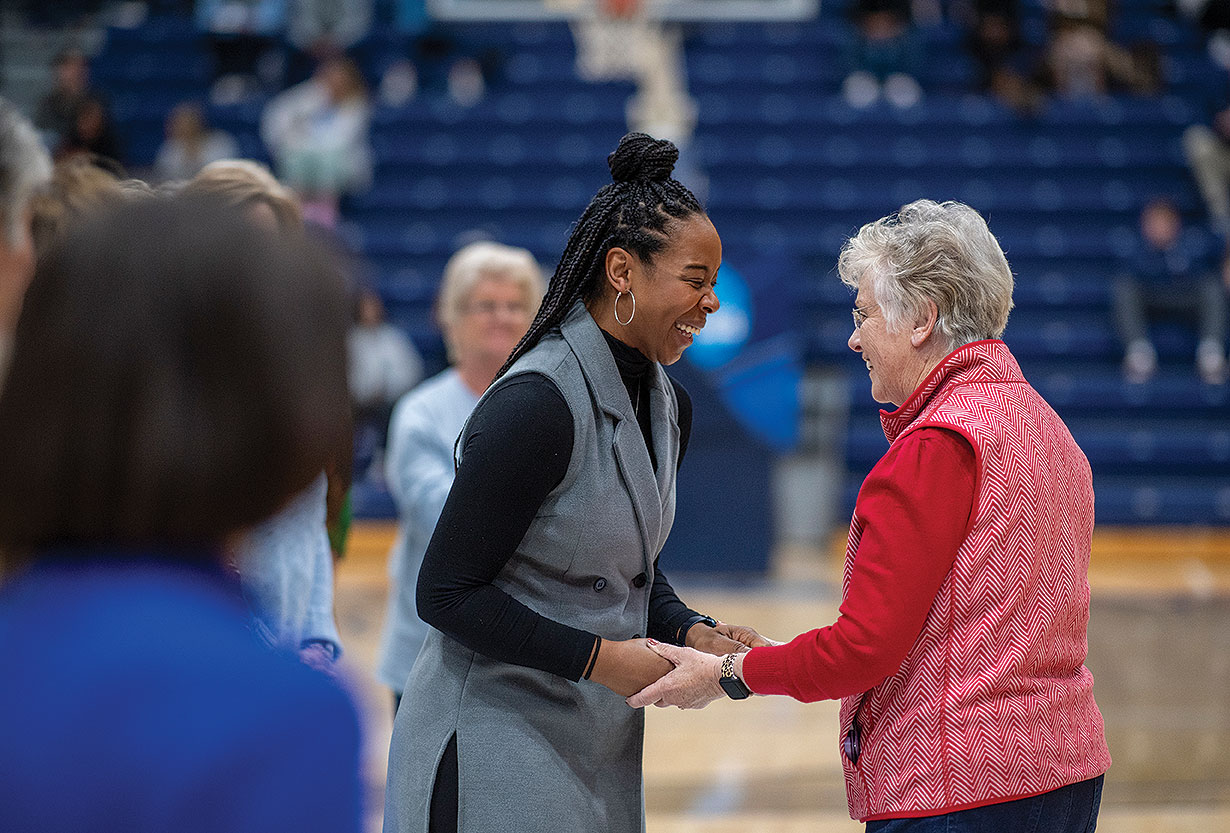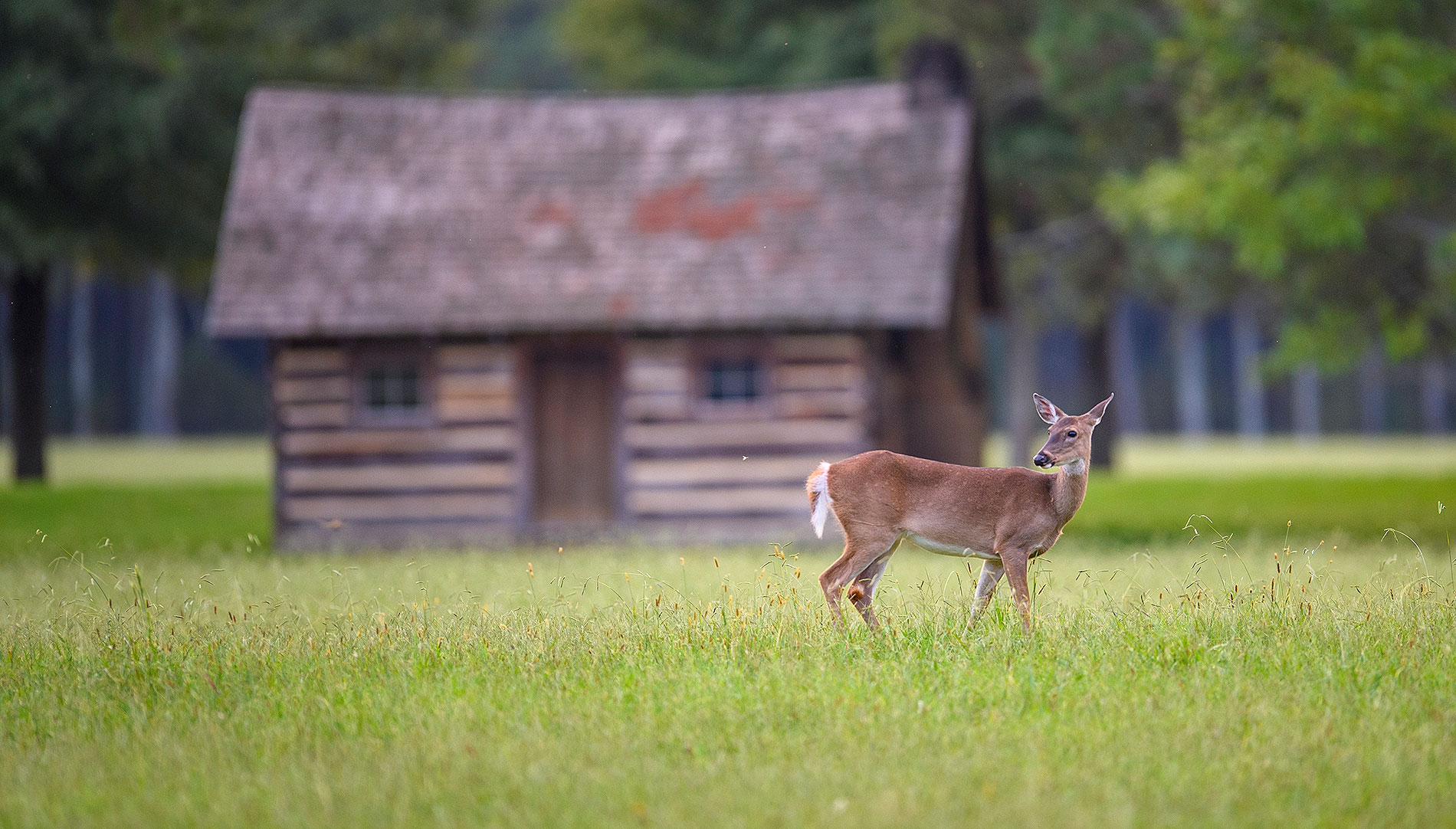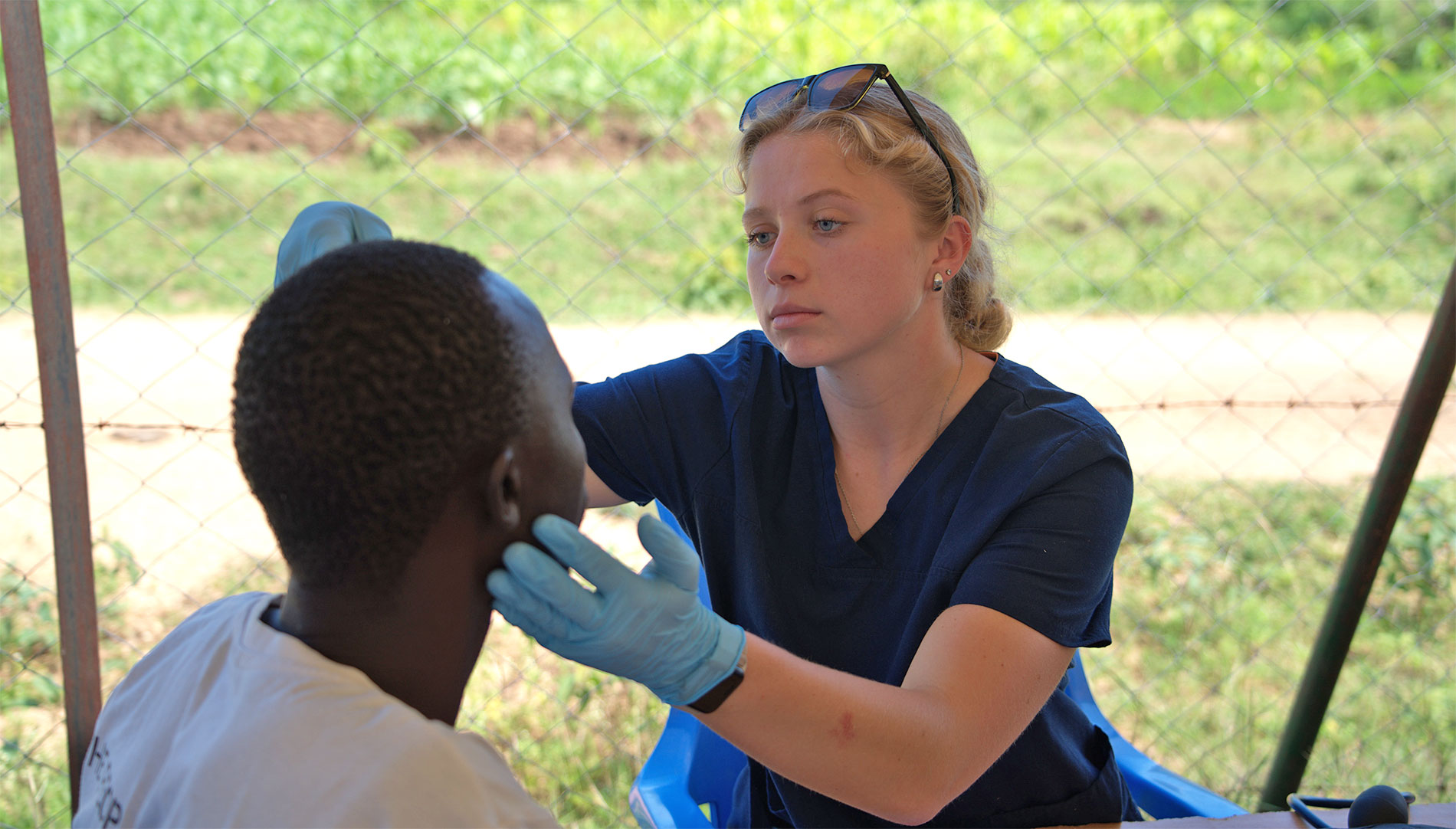Former Berry All-American Nancy Paris Simpson (77C) couldn’t help but feel a swell of appreciation as she watched University of Iowa phenom Caitlin Clark chase college basketball history last spring. The young superstar’s undeniable skill and relentless pursuit of her goals kindled memories of another group of on-court history-makers who lifted Berry to unprecedented heights in 1976.
The “Berry Sisters,” as they call themselves, were trailblazers in the early days after landmark civil-rights legislation known as Title IX cracked open the door for women’s athletics to flourish on a national scale. They took full advantage of the opportunity, capturing Berry’s first national championship in any sport, as well as the state of Georgia’s first national title in women’s basketball at any level of college play. Their accomplishment would not be matched by another four-year college until Clayton State claimed the NCAA Division II crown more than three decades later.
In January, Simpson and her teammates blazed another trail – this time home – for a weekend reunion celebrating their incredible accomplishment. Joined by beloved coach Kay James, the entire group gathered in one place for the first time since the groovy days of the late 1970s. Laughter rang out and tears fell as they walked the familiar paths where hard work, determination and the sweet bonds of sisterhood once brought them – and Berry – never-before-achieved success.
Opportune times
Berry women’s basketball boasted an established tradition of success even before Simpson and her teammates first arrived on campus as students, winning conference titles in 1967 and 1969 and routinely placing near the top of the standings. Chances to reach even greater heights were limited until a 1972 federal law prohibiting discrimination on the basis of sex in educational programs and activities signaled the beginning of a new era for women in college athletics.
Riding this wave was the Association for Intercollegiate Athletics for Women, which offered national championships to parallel those available to men through such organizations as the NCAA and NAIA. In 1975, the AIAW split the field for women’s basketball, making it possible for colleges large and small to compete for top honors among their peers.
Against this backdrop, Berry opened the 1975-76 season with a roster featuring nearly as many newcomers as returnees. James was three years into her first head coaching job, having been hired by Garland Dickey (42C), the man renowned for his role in helping lead the post-World War II rebirth of intercollegiate athletics at Berry. James would go on to a Hall-of-Fame career as head coach at the University of Southern Mississippi; however, in this Bicentennial year, she was just a few years older than her players.
“Back 47 years ago, she was just our coach, and of course, we’d complain about her making us work,” laughed Sharon Adamson Bass (78C), who like Simpson was an All-American on the 1976 team. “But now, we look back at all the things she did for us. She brought in a group of players who didn’t know each other. She allowed us to mesh, which is hard when you’ve been the best player on your team in high school and you’re now around these ladies who are a lot better or at least as good as you. But Kay James had a way to make us love each other and play as a team.”
Simpson, who put together her own successful career as a collegiate head coach and athletic administrator, added, “I’m so excited that women’s sports and athletics have the support, financially and otherwise, that they have now. We didn’t at that time. Coach James was driving the van, doing the laundry and keeping the stats, and we were all just squeezing in this tiny little van going places, but that never seemed a hardship to us. We were just grateful for the opportunity. Every team was like that then.”
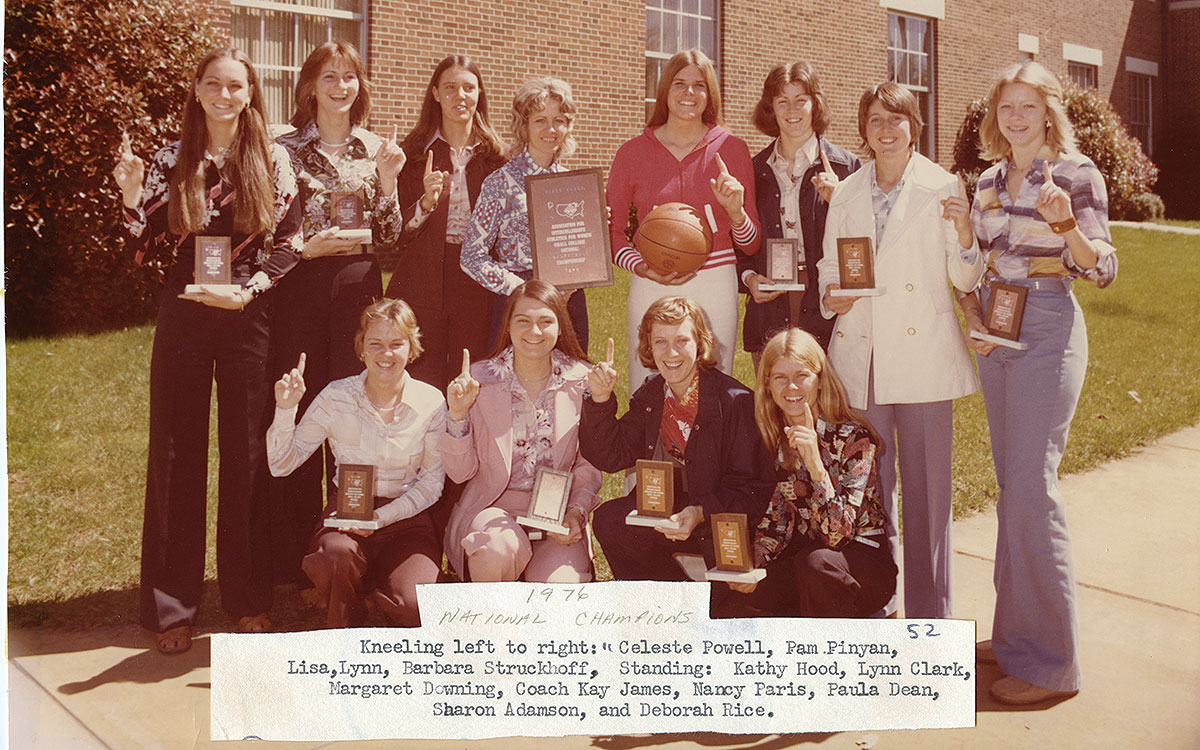
Win for the ages
With Simpson and Bass leading the charge, the team averaged 83 points per game en route to state and regional championships, punching its ticket to the 16-team, single-elimination AIAW National Small College Basketball Championship at Ashland College in Ohio. It was the organization’s second annual tournament for small colleges and Berry basketball’s first appearance on the national stage.
“I don’t think we ever dreamed we’d win,” Bass recalled. “We wanted to, but we were just so excited to be there.”
The exhilaration grew as Berry defeated George Williams College 88-54 before edging out Union College 84-83. Next, they faced host Ashland, winning again by the same nail-biting score. One very familiar hurdle remained: West Georgia College, located just down Martha Berry Highway in Carrollton.
“They were such a rival for us,” Simpson emphasized. “A lot of people would say, ‘I wish you could have played somebody different’ or ‘You could have done that at home without going to Ohio,’ but that’s just the way it worked out. And it’s a sense of pride that the two finalists were from the same area. That spoke to the strength of women’s basketball in the area and the support we were given.”
Berry emerged victorious, 68-62, beating their in-state foes for the fourth time that season to secure their place in history.
